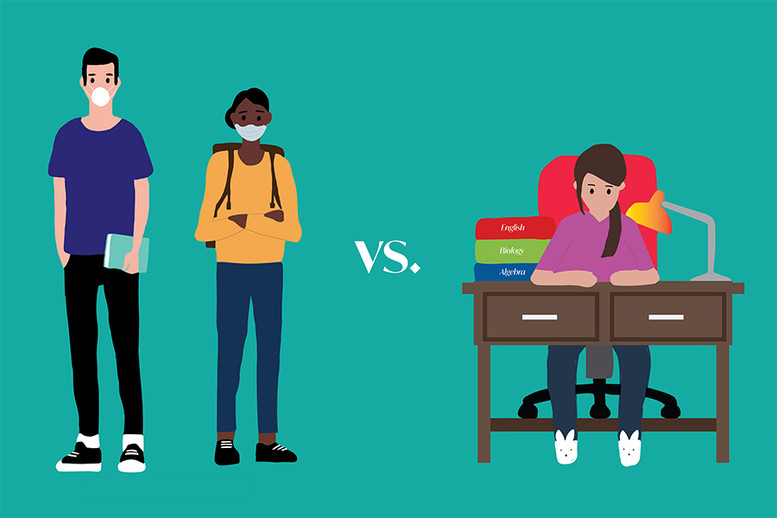There are lots of things that this COVID pandemic has forced upon us as a new normal, from wearing face masks anywhere where there’s the slightest chance that you would encounter another person to social distancing where you can’t come within three feet of anyone else. There have been food shortages, the loss of hundreds of hospitality venues and retail ceased to exist unless it’s been online. All of these things have been difficult to deal with for many, especially those shielding or isolating who might have to stay at home indefinitely, and if they live alone that can very quickly get very lonely. Humans are social creatures and we aren’t meant to live alone, it spirals us into a depression very quickly. However, one of the biggest changes that we’ve seen is the transition from virtually always consulting your GP in a face to face appointment, to virtually always talking to them over the phone or doing an e-consult. This wasn’t something that came as a gradual choice, it was something that was basically forced upon us. So, is this something which should stay in place after the restrictions are lifted? Or should we adopt this new way of consulting a doctor permanently? As you can imagine, there are various pros and cons to be considered, so let’s start at the beginning - WHY are you seeing your doctor? Is it something that you need advice on? Is it a rash or other skin problem? Do you need a prescription for something like hay fever? Do you think you’ve injured yourself and need a GP to check it out? The reason you’re seeking medical advice largely dictates what’s appropriate.
The benefits of online consulting.
Firstly, it’s easier. You don’t have to travel there or sit in a waiting room or book time off work. Most GP surgeries will offer an e-consult system where you can ask your GP about something and they will phone you back to decide if they need to see you or not. It’s quicker and easier and means that you can deal with your consultation on the go.
There’s no hanging around in the surgery. Lots of people get anxious waiting to see a GP and this way you’ll be waiting in the comfort of your own home.
It’s quicker. We all know the pain of needing to see a doctor and being told that the earliest appointment time is six weeks away. Using e-consult, you’re guaranteed to get a call back generally within 48 hours. This weeds out the patients who could go to a pharmacy instead, or just be treated at home with over the counter remedies, freeing up the appointment slots more effectively.
You don’t have to see a GP unless you need to, for some people it’s quite a daunting thing.
You get any prescriptions more quickly. A chat with your GP is usually all you need to get a script sent over to the pharmacy of your choice, rather than waiting to be seen and then taking it over yourself. This way all you have to do is turn up to the chemist and collect it.
The disadvantages.
You don’t automatically get a face to face appointment. For some people, especially those who are particularly worried, only talking to a doctor face to face will give them the reassurance that they need. Sometimes, seeing a GP is a therapeutic thing and not actually solely about their issue. They might want to talk things through, or get advice on something else – things that are more difficult over the phone.
If photos are needed (rashes, skin injuries, suspected broken bones, etc.) then it’s not always easy to send these photos, or be sure that they’ve photographed well. Being in front of a GP means that they can examine you properly.
You might have to convince another clinician that you need to be seen. For example: you phone your surgery, you request advice and you’re told you’ll get a call back. A nurse might phone and not consider that you need to speak to a GP so there are multiple hoops to jump through and not every patient is dealt with properly, it’s easy to slip through the gaps.
Sexual health.
It’s rarely the best option to do an e-consult for sexual health matters. These include:
- -Rashes or spots or some other skin ailment that’s appeared.
- -You aren’t meant to photograph any genitals and send them to your doctor, so if there’s something concerning you down there, you need to get an actual person to look at it.
- -Advice about terminations is rarely something to be done over the phone. Patients might need face to face reassurance, a long discussion or simply take a long time for it to sink in.
- -The various forms of contraception often benefit from being discussed face to face.
But you don’t always need to go to your own GP for sexual health problems, there are multiple clinics out there set up for these very things. Instead of seeing a General Practitioner, you can see medics who specifically trained for these issues, and who can do other useful things like give out free condoms and provide leaflets to take away with you about specific sexual health issues.



